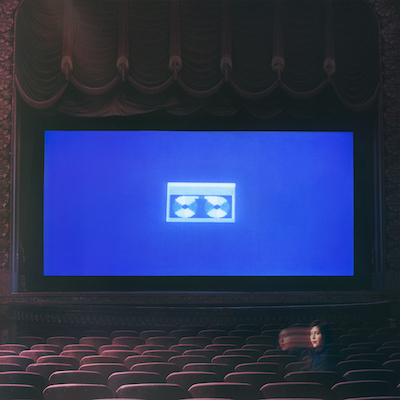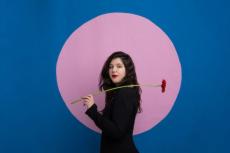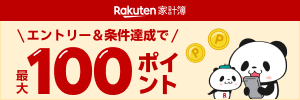「女性が自分の経験としてそこでどんな思いをしたか、どんなに傷ついたかを話すようになってきた状況は素晴らしいと思う」Interview with Lucy Dacus about “Home Video”
NeoL / 2021年8月9日 17時0分
「女性が自分の経験としてそこでどんな思いをしたか、どんなに傷ついたかを話すようになってきた状況は素晴らしいと思う」Interview with Lucy Dacus about “Home Video”
アメリカのシンガー・ソングライター、ルーシー・ダッカス。3作目となる新しいアルバム『Home Video』で彼女が歌うのは、故郷のヴァージニア州リッチモンドで過ごし青春時代のこと。友情、セクシャリティ/身体性、家族、信仰について……さまざまなエピソードに彩られたティーンの頃のほろ苦い記憶が、鋭い心理観察と鮮やかな情景描写によって描き出されていく。「人生の多くは、変化を受け入れ、望んでいなくても別れを告げることなのです」。昨年のロックダウン中、家に置かれた昔の日記を読み返し、過去とのつながりを感じることは、自分自身を知り、未来に立ち向かうための基盤となる方法だと知ったというダッカス。今回のアルバムの制作は彼女にとって、そんなふうに自分の歩んできた道を振り返ることで現在の自分を発見する――そんな実り多き経験だったのではないかと思う。(→ in English)
ーニュー・アルバム『Home Video』のリリース、おめでとうございます。リリースされてからまだ僅かしか経っていませんが、アルバムにはすでに多くの賞賛の声が寄せられています。『Home Video』はご自身にとってどんな作品になりましたか?
Lucy「私はこれまでもパーソナルなことに関して曲を書いてきたけど、初めて自分自身のために曲を書いたのが今回のアルバム。自分が見てきた世界を曲にしたから、なかには自分のことが語られて不快に思う人もいるかもしれない(笑)。でも、私は今回曲を書く上で自分の気持ちに正直になる必要があったから、それをそのまま曲にしたんです」
ー今回のアルバムでは、自分が歩んできた道を振り返り、子供時代や思春期の記憶を訪ね歩くようにしてストーリーが進んでいきます。これまでもあなたの音楽は、自身の個人的な経験を元にして書かれていたと思いますが、ただ、今回の楽曲はどれもディティールがとてもドラマチックで、登場人物のキャラクターも多彩です。こうした変化はどのようにして生まれたのでしょうか?
Lucy「前よりも、それをやっても大丈夫だと思えるようになったからだと思う。人って、安心感を感じられる時こそ、自分がこれまで処理できずにいたことに向き合いオープンになれると思う。もうそのことを考えても対処できるって思えるようになるから、過去や昔の記憶を振り返ることが出来る。それは簡単なことではないけど、住んでいる場所だったり、人間関係だったり、今私がいる環境が、そういった事柄にアプローチしても大丈夫だと思わせてくれました」
ー昨年のロックダウン中に受けられたNMEのインタヴューでは、「今回のレコードは完成させるためにかなりの時間を費やしている(I’m pretty deep into completing my third record」と話されていましたね。
Lucy「覚えています。私は、レコードをリリースする度に、その次のレコードがすごく遠くにあるように感じるんです。今回のアルバムも実際そうだった。この作品に収録されている曲を作ったのはだいぶ前だし、誰かから明日レコードをリリースしろと言われたとしても、今の私の手元には曲がないしね(それくらい全力投球してアルバムを作るから)」
ー今回の制作にあたって、もっとも腐心されたところ、神経を使ったのはどのあたりでしたか?
Lucy「曲作り自体はすごく楽しくてスムーズだったし、作りながら満足感も感じられた。一番大変だったのは、他の人がどう思うかを気にせずに曲を外に出す自信をつけること。私自身のためにそれらの曲を書く必要があったのだと自分を納得させるのは、容易ではありません。昨日も母親と話をしていたんだけど、自分のことを正直に話すって、必要なことだとはわかってても、それを人に話すのは難しいことだなと未だに感じます」
ーアルバムでここまで自分のことを正直に語るのは、あなたにとって自然なことでしたか? それとも、「頑張って書くぞ!」といった感じで、自分を奮い立たせる必要がありましたか?
Lucy「新しく自然なことになったんだと思う。最初は自然なことだと思っていなかったけど、ふと気づいたらすごく心地よくそれが出来ていた。パーソナルで赤裸々なことがスラスラ書けていて、自分でも驚いたくらい。最初は全く自然ではなかったから、何が自分をそこまで強く動かしたかは自分にもわからなかった。なかには、自分のことは何も書かないことを好むミュージシャンもいます。私ほど人に自分の情報を与えないミュージシャンたちも沢山いると思う。でも私は、それをうまくできないんです」

ーちなみに、そのロックダウンの期間には、昔に書いた古い日記を読み返していたそうですね。自分の記憶、過去をたどることは、楽しくもあり、ほろ苦くもあり、あるいは混乱した気持ちにさせるものでもあると思いますが、日記を読み返してみてどんな思いが湧き上がってきましたか?
Lucy「ほろ苦いっていう言葉がピッタリだと思う。「Hot & Heavy」の歌詞の最後も”It’s bittersweet to see you again”だし。あの歌詞を書いているとき、シンプルすぎないか、もしくは陳腐すぎないか心配したんだけど、やっぱり”bittersweet”って言葉がパーフェクトだと思った。懐かしいし、暖かさも感じるけど、同時に恥ずかしい気持ちにもなるし、滑稽でもある。そういう意味では、自分自身を笑えるようになる良い練習ですね。今回は、それが出来るようになったと思う」
ーその経験を通して、何か発見や理解したことはありましたか?
Lucy「自分が一番気にかけているのは、人々を結びつけることなんだということに気がつきました。子供の頃からずっとそうなんです。私の母親が舞台に関わっていたから、私もショーに出たりしていたし、父親は私を撮影してホームビデオを作っていた。だから私の中で、見られていることと見られていないことの間に境界線がない。人に見られていることを当たり前だと思うになったのは、そういう経験を通してだと思う。それが私を華やかなパフォーマーにしたわけではないけど、ある意味、人に見られているということに慣れさせたとは思いますね」
ー今のあなたから見て、自分はどんな子供、あるいはティーンでしたか?
Lucy「人を喜ばせたがる子供。とにかく皆をハッピーにしたいと思っていた。親にとって誇りに思える娘でありたかったし、教会の人達にも、友達にもハッピーでいて欲しかった。友達数人と“Joy Bandits”(幸福盗賊)っていうシークレットクラブを作って、ランダムに人を選んで、その人を観察して、匿名でその人が喜ぶプレゼントを渡したり、パーティーを開いたりして驚かせてた。そうやってその人の1日を意味あるものにしたくて(笑)。私はちょっと変わった子供だったんだと思います(笑)。高校の廊下を歩きながらシャボン玉を吹き飛ばしたり、皆に花をあげたりもしてたし(笑)、とにかく人が笑顔になるのを見るのが好きだったんですね」
ー「Brando」では、音楽や映画の趣味を通じた友人との関係が、様々な固有名詞を交えながら描かれています。ここでの友人は、今でいうなら「マンスプレイニング」という言葉で説明できそうな態度であなたに映画や音楽の知識を説いてきます。実際のところ、あなた自身としては、ティーンの頃に夢中になった音楽や映画、カルチャーはどんなものだったのでしょうか?
Lucy「パンク・ミュージックや90年代のロックにすごくハマってました。それは高校に入学してからの話で、その前はトップ40に入る音楽とか、教会の音楽、あとは両親の影響でブルース・スプリングスティーンやプリンスを聴いてました。ブルース・スプリングスティーンとプリンスは未だに私のお気に入りだけど、ティーンになってからはラモーンズやウィルコを聴くようになった。あと、私はヴァージニアのリッチモンド出身だから、ノイズ・シーンにも囲まれていて、ノイズのショーにも行ってた。あとはヨ・ラ・テンゴ。私が〈Matador〉にいる理由はきっとそれね。今話したバンドや音楽は、今でも聴いています」
ーカルチャーはどうですか?
Lucy「音楽演劇くらい。それも、母親がそれをやってたから。幼い時は、それこそチャーチ・カルチャーに関わっていました。昔の映画にハマるようになったのは高校生になってから。ショーにも行ってたし、母親の演劇を見に行ったりもしていた。スポーツに夢中になったことはなかったんだけど、最近になってスポーツが好きになり始めたの。見ていてすごく楽しい。昔は、愛国心は良くないものだと思っていたし、暴力的で筋肉ムキムキ=男らしいというイメージを作り、毒性だと思っていたから、前は寧ろスポーツを嫌っていた。それももちろん事実でもあるけど、スポーツには結束という魅力もありますよね。選手一人一人にも色々なストーリーや背景があるし、熟練を要するものでもある。だから今はサッカーとテニスをよく見ていて、最近はバスケットにもハマり始めたところ」
ー「Brando」に出てくる音楽や映画は、実際にあなたが夢中になっていた作品でもあるのですか?
Lucy「沢山名前が出てきますよね。『カサブランカ』とか、『欲望という名の電車』とか。“Brando”という言葉は、『欲望という名の電車』から来てる。フレッド・アステア&ジンジャー・ロジャーズもそうだし、男女が互いに反応し合う、40年代~50年代の白黒映画ばかり。それが、当時の彼が私に求めていた彼と私の関係でした。私たちが人生という映画の主役って感じ。お互いがそれぞれの相手役。あの曲での私はちょっと生意気に、批判的にそれを語っているけど、私もそういう映画が好きだったし、今でも大好き。私と彼の友情は完璧ではなかったけど、良いことも沢山あった。でも私はあの曲で、誰かが自分に何かを教えようとして、まるで自分が世間知らずのように感じさせられる友情の部分にフォーカスを置きました。その人だけが自分をクールにしてくれるんだと思わせられる友達。実際に私がそう感じていたから」
ーその友人に教えられたものではなく、自分が自ら好んで楽しんでいた作品は?
Lucy「ヒッチコックの映画は沢山観ていた。あとは、史上最高の映画を自分で調べて観ていました。『市民ケーン』は好きだったし、10代の頃の私のテイストは結構高度だったと思う。でも今は、『オーシャンズ11』や『スペース・ジャム』を観てる(笑)『スペース・ジャム』は良い映画!(笑)。あと最近は、A24の作品も結構好き。でも昔は、もっと古い映画を沢山観ていたんです」
ーなかでも、自分のことを認めて、エンパワーメントしてくれたものは?
Lucy「ビョーク。彼女は私の音楽に対する考え方を変えてくれました。私はビョークみたいに曲を作るわけじゃないけど、サウンドの境界線を押し広げてもいいんだということを教えてくれたから。怒りをサウンドで表現してもいいし、スウィートで静かな音を出してもいいし、ラウドにしてもいい。自分にとって意味をなす曲を作ってもいいし、意味をなさない曲を作ってもいい。とにかくその音の世界を自分で作り出すことができればいいんだと彼女のおかげで思うようになった。若い時にビョークの音楽を聴いて、すごく圧倒されたのを覚えてます」
ーその「Brando」もそうですが、年上の男性との恋愛を描いた「Partner in Crime」、あるいは、男の子と女の子、男と女、父と娘というサイクルのなかで変化していく男性の役割を考察した「Going Going Gone」など、男/男性という存在や社会的立場に向けられた率直で批判的な視線というのも今回のアルバムでは印象に残りました。友人のひどい父親に対する気持ちを歌った「Thumbs」もそうですね。その辺りについてご自身ではいかがですか?
Lucy「すごく面白い観察だと思う。今言われて考えてみると、「Christine」もそう。私はどうやら男性に対して批判的みたい(笑)。それを指摘されたのは初めて。私自身は意識的に男性への批判的な視線を表現しようとしたわけではないんだけど、私の人生の中で、自分が正しいんだと主張したり、本当はそうじゃないのに私よりも自分の方が優れていると思わせていた人達が男性だった。全ての男性がそうとはもちろん限らないけど、年配の男性が若い女性たちに、自分たちがいなければお前たちは暮らしていけないと思わせるのは珍しいことではないと思う。威張ることが許されていると思っている感じ。今の私は、多分前ほどそれに耐えられなくなっているんでしょう。大好きな男性も沢山いるけど、がっかりさせられる男性もいる。アルバムのなかでこんなに沢山でてくるから、どうやら間違いなくこれは作品のテーマの一つみたい(笑)」
ーそうしたところに目が向けられた背景には、ここ数年アメリカを支配してきた雰囲気へのリアクションという側面もあるといえますか? 音楽業界では改善の兆しも見せつつありますが、一方でジェンダーの二元論や家父長制の傘の下にある価値観というのは、特にトランプ政権以降のアメリカでは社会に暗い影を落としてきたと思うのですが。
Lucy「書かれているストーリーは曲ごとに違うし、そのストーリーに出てくる男性たちは、男性として描かれているのではなく、特定の個人として登場してくる。男性が、というよりは、その特定の人物が間違っていて、人々を失望させ、傷つけていた。でも、そういった出来事を描写しようと思った、もしくは描写しやすくなったのは、そういう問題について人々が以前よりも口を開くようになったというのも影響しているかもしれない。女性がもっと自分の経験やそこでどんな思いをしたか、どんなに傷ついたかを話すようになってきたから。私はその状況は素晴らしいと思う」
ージェンダー問題に関する状況は、音楽業界含め世の中全体で良くなってきていると思いますか?
Lucy「判断するのは難しいですね。良くなってきているようにも見えるけど、なんだか新しい征服が生まれているような気もする。奴隷問題も消えたことはないし、今は産獄複合体(巨大な利権に群がる人々や組織)の問題もあるように、女性も投票権は持つようになったけど、給料はまだ同額でなかったりもするし、法廷では女性への暴力事件が軽視されてもいる。だから、良くなっていると一概には言えないと思います。もちろん解決に向かっているとは思う。私が生まれてもいなかった何十年も前に比べたら確実に良くなっているんだとは思うけど、理想的といわれるとそれはなんとも言えない」
ー少なくとも、公で語られるようになったのは良いことですよね。
Lucy「そうですね。私は、女性に限らず、性別を超えて世の中が平等になることを願ってる。何においても適切に扱われるべきだし、女性に限らず、トランスの人々もノン・メンの人達も、全ての人々が認められるべきだから」
ー「VBS」では、子供時代に経験したバイブル・キャンプのことが歌われています。今はどの宗教にも属されていないとインタヴューで話されていましたが、例えばクリスチャンとして育てられたという事実が、今の自分の考え方や生き方に及ぼしている影響を感じる部分はありますか? その事実への反発、という部分も含めて。
Lucy「影響は大きいです。良い影響を感じることもあるし、ものすごく重荷になることもある(笑)。忍耐、寛容、愛、人を尊敬することを子供の頃から学ぶことはできたし、自分の行動をちゃんと意識するという点では良い影響を受けたと思う。でも同時に、純潔や決められた価値観に関しては、私はもう信じていない。その価値観を捨て去るのには長い時間がかかったし、時間がもったいなかったとも思う。それを考える時は悲しくなるんですよね」
ー「Triple Dog Dare」で、友人との間のクィアなロマンスを引き裂く友人の母親は、カトリック教徒で霊能者だったそうですね。あなたの音楽やサウンドへの影響に関してはどうでしょう?
Lucy「サウンド自体への影響はないけど、内容への影響はあると思う。教会音楽と舞台音楽に触れて育ってきたけど、その音楽は両方とも目的や意義を定義する音楽。音楽を通してコミュニケーションを図ろうとしているのがそれらの音楽。ミュージカルの音楽はストーリーの筋を先へと進める役割をしているし、教会ではある感情を想起させ、大衆にメッセージを送る役割を果たしている。私も曲を書く時は何かとコミュニケーションをとる必要があるし、曲を書くことによって目的を果たそうとしてるから、そこは似ているんじゃないかな。サウンド自体が教会音楽っぽいわけではないし、舞台音楽っぽいわけでもないけど、ソングライティングの面では影響を受けていると思う」
ーところで、本作の舞台となった地元のリッチモンドを離れて、現在はフィラデルフィアで暮らされているそうですね。新天地での暮らしぶりはいかがですか? ポジティヴな変化は何かありましたか?
Lucy「ここの暮らしは大好き。フィラデルフィアは本当にいい街で、音楽をやっている友達もやっていない友達も沢山いるし、一緒に暮らしているハウスメイトの中には10年以上の知り合いもいる。自粛生活で街を十分に開拓できずにはいるけど、私の周りは皆ワクチンを接種したし、もっと多くの人にワクチンが届いて世界が元に戻ることを願ってる。今も友人たちが下の階で笑っているのが聞こえてるけど、そういうのがすごくいい。変化としては、緊張感がなくなった気がする。ホッとしてリラックスできてる感じ。前ほど人に見られてる感じがしない。リッチモンドでは、人に見られてジャッジされてる気がしてた。外食をしてもずっと見られてる気がしていたし、全くプライバシーを感じられなかった。だから、マスク生活は私にとっては最高でした(笑)。フィラデルフィアで私を知っている人たちは私の音楽で私を知っているだけからいいんだけど、リッチモンドだと、「2年生の時一緒だったよね」とか、「自分の親が君の美術の先生だったんだ」とか、「同じ教会に通ってたよ」とか、音楽だけでなく色々な状況で私を知ってる人たちが話しかけてくる。それがちょっと過剰だったかな」

ー今話されたように、フィラデルフィアに移住したのは、音楽活動を通じて自分の存在が世間に知られるようになり、プライバシーが侵害されるようになったため、心機一転する必要があったからだったそうですね。そこはジレンマを感じるところだと思いますが、音楽を作ることは、今のダカスさんにとってどういうものですか?
Lucy「音楽を作らないという選択肢は私にはない。音楽を作ることで、私は自分自身をより理解することができるから。音楽以外でそれをやろうとしても、音楽以外のアートでそれをしようとすると思う。自分自身が何を考えているかを把握するためには、私にとっては何かクリエイティヴな表現方法が必要なの。私が考え事をする時は、それを言葉で考えない。だから、それを理解するためにはどうにか表現しようとしなければならないし、外面かする必要がある。それをしなかったら、血迷ってしまうと思う」
ー今回のアルバムを通じて、過去の自分とたくさんの言葉を交わされたのではないかと想像します。昔の自分に何かアドバイスするとしたら、どんな言葉をかけますか? あるいは、一つだけ過去を変えることができるとしたら、何をやり直したいですか?
Lucy「もし本当にそのチャンスがもらえたとしても、私はそれを受け取らないと思う。なぜなら、私は何も変えたくないし、自分の人生や経験に満足しているから。でも、何かをどうしても言わないといけないとしたら、“ゲイでいても大丈夫”って言うかな(笑)。あと、ある男性とは付き合わないようにアドバイスする(笑)。でも、これまでの人生があるから今の私がいるし、私はそれに満足している。だから、あまり何かを変えたいとは思わない」
text Junnosuke Amai(TW)

Lucy Dacus
『Home Video』
(BEAT RECORDS / MATADOR RECORDS)
Now ON SALE
国内盤CD
国内盤特典:ボーナス・トラック追加収録 / 解説書・歌詞対訳封入
BEATINK.COM:
https://www.beatink.com/products/detail.php?product_id=11810
TOWER RECORDS
日本盤CD
https://tower.jp/item/5185578
輸入盤CD
https://tower.jp/item/5185584
輸入盤LP
https://tower.jp/item/5185587
限定輸入盤LP(クリア・ヴァイナル仕様)
https://tower.jp/item/5185590

- Congratulations on the release of your new album, “Home Video”. Your album was released a week ago, already there are so many great comments about the album. What does this record mean to you?
Lucy : I think I’ve always written about personal things. But this is the first time I wrote songs for myself. Like I expressed my perspective in a really specific way. It may have made a few people in my life unhappy. And I needed to be honest about what I think.
- You mentioned that this album is for yourself, and you have been doing this before. This time it's so detailed, so dramatic, there are so many characters in the song as well. How did this transition happen?
Lucy : I think I feel safer now than I ever have before, like where I live and in my relationships. And I think that when you feel safe, you open yourself up to all the things you didn’t get to process in the past. So I feel like I can handle it. Like reclaiming the past and taking on all these memories. It's not always easy but I count it as a blessing that my current surroundings make me feel like I can approach those things.
- Was it satisfying or rewarding?
Lucy : Yea.
- In an interview with MMA, you said that “I am pretty deep into completing my third record.” Do you remember that?
Lucy : Like about Homevideo? Yea. Whenever I put out a new record, the next record is pretty far along. That's even true this time. I made this record so long ago that if someone made me make a record tomorrow that I would have the songs.
- What was the hardest thing this time? What did you have to put the most focus on?
Lucy : Not the music. The music was really fun and easy. It felt very rewarding. I think the hardest thing would honestly be building up the confidence to put it out, not worry about other people. Just owning it like I have to do this for me. It hasn’t been easy, even yesterday I had a talk with my mom which was difficult. I think it's very important to be honest, at least to me. Maybe not everyone but at least to me.
- Was it natural to you to be honest, and talk about yourself on the record?
Lucy : I guess it was a new natural. I don’t think it was natural for me, but because I was so comfortable, suddenly I was wearing these clothes that were personal and revealing. I was surprised by it. But it doesn’t come naturally. I don’t know why I felt compelled to do it. Cause some people don’t share this much and it’s fine. There is plenty of musicians that don’t give as much information as I do. And I could be those musicians. I guess that's just not how I do things.

- Looking back at your old memories, or history, it's fun but you get confused sometimes. It could make you emotional and bittersweet. What do these memories evoke you?
Lucy : I think ‘Bitter sweet’ is a perfect word. When I was finishing “Hot and Heavy”, the last line is “it's bittersweet to see you again”. I was worried that it was too simple or corny. But it was the perfect word.
I feel like it’s nostalgic, feel warmth to it but it's also kind of embarrassing. It’s kind of humorous, it's good practice to laugh at yourself. So I’ve done a good deal of that too.
- Through doing this, did you discover or notice anything?
Lucy : I think I’ve learned that what I care about most is bringing people together. I’ve only wanted to do that since a child. I was always performing because my mom was involved in the theatre so I would be in shows. My dad was filming me making videos all the time.
-I didn’t learn a separation between being observed and not being observed. They taught me to expect to be watched. So I didn’t become a flashy performer, but I became used to it in a way.
- Now as an adult, looking back at your childhood and times as a teenager, what kind of person were you?
Lucy : I was a people-pleaser. I feel like I wanted to make people happy. Like make my parents proud, my church happy, make my friends happy. I even had a secret club with a few of my friends called the Joy Bandits. We would pick a random person and study them, figured out what they liked and surprised them with what they liked, like gifts or a party. We just tried to make their day. I guess I was corky, I would walk through the high school hall blowing bubbles or give flowers to people. It honestly feels like I am a cartoon when I put it like that. I think I just liked watching people smile.
- That’s so sweet of you. What were movies or music you were into at the time?
Lucy : Once I got to high school I was really into punk music, 90’s rock. Before that, I only knew about Top 40, church music and Bruce Springsteen and Prints from my mom and dad. Bruce Springsteen and Prints are still favourites of mine, but I learned about the Ramones and Wilco. I’m from Richmond Virginia, and there was a noise scene, so I would go to noise shows. Also, I listened to Yo La Tengo, who is probably the reason why I am on Matador right now. I still like all of those bands.
- Were you into any culture?
Lucy : I wasn’t very cultured, other than Musical Theater because that's what my mom did. When I was much younger, church culture,
I got into old movies when I was in high school, I went to shows and still went to my mom’s theatre productions. Never sports but recently I’ve been getting into sports and that's fun. I hated sports because I thought Nationalism was bad, there was violence, masculine toxicity, but now I realize all of that is true, but you can see the unity that each person brings. The individual victories and stories of players, and it's also very skilful. So I’ve got into soccer, tennis and I’m trying to get into basketball.
- On your track, “Brando”, you talked about you relationship between you and your friend.
Your friend talks about music and film. Are those things you watch or listen to?
Lucy : There are tons of references. There is “Casablanca”, “Street Car Named Desire” which is where Brando comes in, “It’s a Wonderful Life”, Fred Astaire and Ginger Rodgers, is when the black and white 40s romantic dance movies where there a man and women play off each other. And that's how he wanted our relationship to be, where we were the main characters in an ongoing movie of life. He wanted his scene partner.
I think it’s worth saying that I’m being cheeky and critical of those songs. But I still love those movies. We didn’t have a perfect friendship but a lot of it was good. I just wanted to highlight the specific scenarios in friendships where someone is like making you feel dumb because you don’t know these things and they are the only person who can show you to be cool. That's how I felt.
- What kinds of movies did you watch?
Lucy : I watch a lot of Hitchcock movies, I would just go search ‘Best movies of all time’ and just watched them. I loved Citizen King. I feel like I had higher tastes when I was a teen. Now I’m watching Oceans 11. We watched Space Jam. It’s a great movie. I like A24 movies nowadays. But at the time it was a lot of older black and white movies.
- Was there any music or films that empowered you as a teenager?
Lucy : Honestly, finding Bjork made me think about music differently. I don’t make music like Bjork, but it just showed me that you can stretch the boundaries of sound. You can sound angry, you can sound sweet, you can quiet or loud. You can write a song that makes sense or you can write a song that doesn’t make sense. You can create a whole world. I think that Bjork just blew my mind.
-Do you think your critical look on men, affect your music? For example “Brando”, is about this man who teaches you to be cool. And in “Partner in Crime” you talked about a relationship with an older person. In “Going Going Gone”, you talked about a man as well.
Lucy : That's a great observation, and now that I’m thinking about that “Christine” is also about her boyfriend not being good enough for her. I guess I’m being critical of men. It’s interesting because you are the first person to put that together. I didn’t even realize I was doing that. I wasn’t doing that on purpose. Part of growing up and coming into myself has been admitting that some people who insisted they were right or insisted they were superior to me were wrong. They weren’t superior to me and those people were men in my life. I don’t know if this should be extrapolated to all of the manhood. But I think it's not uncommon that men or boys tell younger girls that they are lost without them. Or they feel like they are allowed to lord over. I think I have lower patience for that than ever in my life. Plenty of men I love, but the ones on the lyrics were disciplinary.
- You started looking at this issue more, because of what is happening in the states. But maybe you were not conscious of it.
Lucy : I think I am going into consciousness more. Every individual story feels true, and I believe that man is bad. But I guess I hold a lot of stories of particular men that had been wrong, disappointing and hurtful. I think part of why I was able to come up with these stories and put words to these things is because of this movement, where more women talk about their experiences where they have felt hurt, abused or taken advantage of. I am grateful that it is something we can say out loud now easily.
- Do you think in the States or the music industry, the situation is getting better?
Lucy : It's hard to know because in some ways it looks like it getting better, but I’m wondering if it's just shaping into a new type of subjugation. Like how slavery never really went away in the US. It went from slavery to the Industrial complex.
Now women can vote, but they are still not getting paid the same. In courts, assault cases aren’t respected universally. There are still laws that don’t respect the words of a woman. I guess it does feel closer, I wasn’t alive many decades ago. I’d like to think yes but it’s hard to say. I’m hoping that even beyond womanhood, the struggle for equality, equity includes trans people and any non-men. I am excited to expand in that way.
- On VBS, you talked about a bible camp experience as a kid. And you mentioned in a previous interview that you aren’t Christian. Do you think being raised as a Christian has had an impact on how you think, who you are and your music?
Lucy : Yes, a huge impact. Sometimes I’m grateful for it, other times it’s such a burden. I’m happy that I learned about patience, forgiveness and love. I was taught at a young age to respect people, think about death and think about my actions. But some lessons from church about purity, behaviours, certain value systems that I didn’t believe in anymore. I spent so long unlearning those things and I feel like I lost time to them. In a way it makes me feel mournful.
- Your song “ Triple Dog Dare” was about your friend’s mom being Catholic and Psychic. Do you think it affected your music?
Lucy : Yes. Not the sound, but growing up singing church music and musical theater taught me that music serves the purpose. It is communicating something. In a musical it has to move the plot forward, in church it has to evoke emotions and send a message to the masses. I think that in my songwriting, I always felt that I need to communicate something. It needs to be precise and serve a purpose. So I don’t think my music sounds like church music or theater, but it has influenced my songwriting.
- You moved from Richmond to Philpapehia. How was it like having a new life?
Lucy : I love it. Phili is a good place. I have so many friends here that do music, some don’t and that’s nice. I live in a house with friends I have known for over ten years. It’s been tough during quarantine, not being able to know the city. But everyone I know is vaccinated and I hope the same for everyone all over the world. We have friends that are staying the night tonight. I just heard them laugh downstairs. It’s just nice to have that close at hand.
- Did anything change in a good way since you moved to your house in Philadelphia?
Lucy : I feel like my muscles untensed and I didn’t realize they were tense. I don’t feel as watched. I felt very watched and judged in Richmond just because it was a small place that a lot of people knew who I was. So going out to eat, people are watching me. And even if our interactions were really short, I didn’t have privacy. Honestly wearing a mask has been awesome. I could go anywhere and it's fine. When I see people in Philli, they know me for my music. That's not complicated, but in Richmond, it's like ‘we were in second grade together’ or ‘my aunt is your art teacher’ or ‘I used to go to the church you went to’. Everyone knows me in multiple ways so it feels too much.

- We heard that one of the reasons you moved to Philly was because you couldn’t protect your privacy. Everyone started knowing too much about you through your music. It's hard to keep a balance. You want to put your music out, but you want to protect your territory too. What does making music mean to you?
Lucy : It doesn’t feel like an option. What it means to me is that I can get to know myself. Without it, I might pick up some other form of art. I think I need a creative expression to know what I think at all. Because I don’t have an internal dialogue. When I think I don’t think in words. So I would need to be writing or externalizing it. Without making music I would feel lost.
- To make this record, you communicated with yourself in the past. If you were to give her some advice, what would you say?
Lucy : If I had the chance, I wouldn’t take it. Cause I wouldn’t change anything. I’m happy with where I am. But if I had to say something, I would say, “It’s ok to be gay” and “Don’t date that one guy”. Overall, I like where my life is headed, so I wouldn’t change anything.
- Yes, everything you did before makes who you are now.Can you pick one track that you listened to a lot during the pandemic? And give us a reason why.
Lucy : It would be Traumerei by Robert Schumann. It’s a piece of classical music, a short beautiful piano song. It’s just calming. I listen to it, I love the melody. It makes me feel like I can slow down and breathe.
- Do you listen to classical music a lot?
Lucy : Not a lot but I do love it.
text Junnosuke Amai(TW)
関連記事のまとめはこちら
https://www.neol.jp/music-2/
外部リンク
- 「女性が自分の経験としてそこでどんな思いをしたか、どんなに傷ついたかを話すようになってきた状況は素晴らしいと思う」Interview with Lucy Dacus about “Home Video”
- ZEN-LA-ROCK / G.RINA / 鎮座DOPENESSによるユニットFNCYによる2nd ALBUM『FNCY BY FNCY』
- 釈迦坊主、最新作。2nd EP『RYO』
- 「ブラック・ミディの音楽の作曲方法は即興演奏が主体であるという考えに、自分たちまでもがとらわれていた」Interview with black midi about “Cavalcade”
- 「AAAMYYYの声にはすごく特別な高域の部分がある」「ものすごく良いトラックの上にさらに面白いことをやっていく職人という気持ちで臨みました」Maika Loubté & AAAMYYY “It’s So Natural ” インタビュー
この記事に関連するニュース
-
この英語ってどんな意味?「Wake up and smell the coffee.」
OTONA SALONE / 2025年1月4日 7時0分
-
英語での会議や会話で自分の意見を述べたいときは?“I think~”以外の使える表現のバリエーション【ビジネス英会話のコツ】
THE GOLD ONLINE(ゴールドオンライン) / 2025年1月2日 9時15分
-
≪韓国ドラマOST≫「ラブ・パッセンジャー ~私たちの恋愛事情~」、ベスト名曲 「Somebody」=歌詞・解説・アイドル歌手
Wow!Korea / 2024年12月23日 10時34分
-
この英語ってどんな意味?「apple of my eye」
OTONA SALONE / 2024年12月22日 7時0分
-
【愛しとーと】国際機関ESQRの品質優秀ダイヤモンド賞「Quality Choice Prize 2024」を受賞!
PR TIMES / 2024年12月20日 13時45分
ランキング
-
1「楽天ポイント」を最高にお得に貯める方法。“1ポイント=1円”以上の価値になるテクニックもあった!
女子SPA! / 2025年1月11日 15時46分
-
240歳から運動不足解消は何から始めたら良いの?
JIJICO / 2018年3月30日 7時30分
-
3老化が加速してしまう!40・50代がやりがちなNG “老け習慣”7つ
つやプラ / 2025年1月12日 12時0分
-
4特殊清掃員が明かす「冬のお風呂で突然死」の壮絶現場。“ヒートショックのリスクが高い家”には共通点が
日刊SPA! / 2025年1月12日 15時54分
-
5これなら体重維持の邪魔をしない…チョコレート中毒なのに太らないフランス女性が食べている"チョコ"の種類
プレジデントオンライン / 2025年1月12日 16時15分
記事ミッション中・・・
記事にリアクションする
![]()
記事ミッション中・・・
記事にリアクションする

エラーが発生しました
ページを再読み込みして
ください










